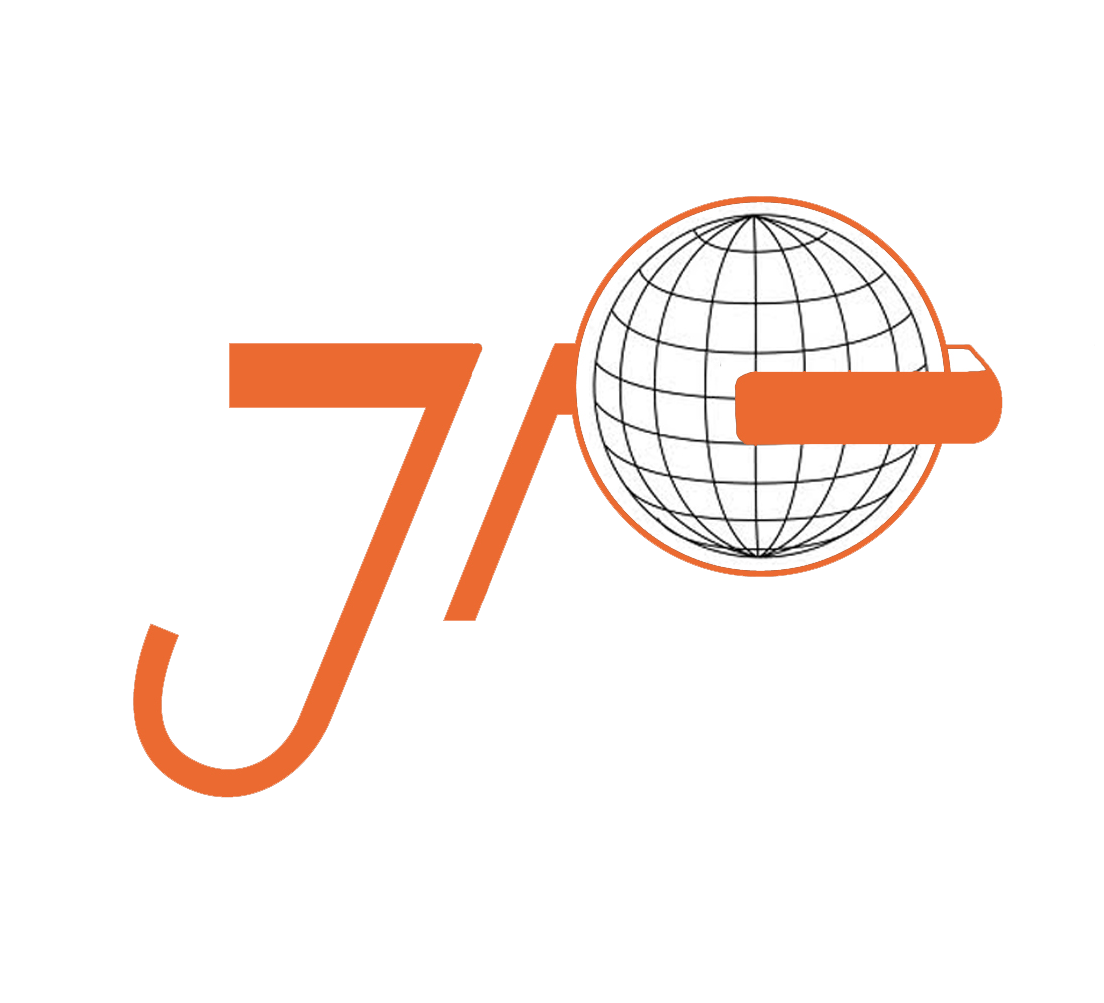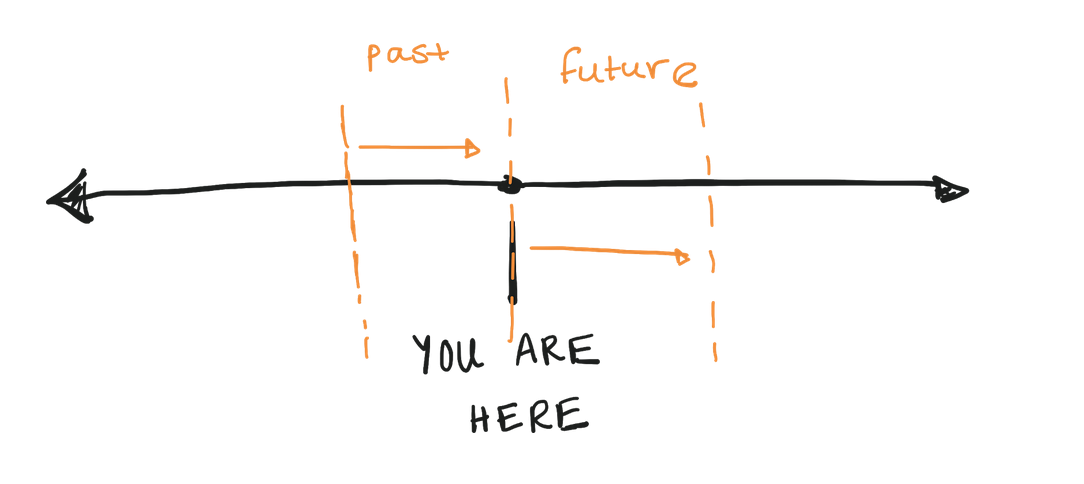French Tenses: The Recent Past and the Near Future
by Brian Alcamo
Here’s a situation:
You’ve just finished your first semester (or two) of French, and you’re looking to practice with a native speaker. Since no one can meet in person right now, you schedule a Zoom session. You’ve got your passe compose, imparfait, and futur simple memorized to a T, and things are going well (aka you said “bonjour” with a passable r). Suddenly, you hear a phrase je viens de sortir, which translates literally to “I come from to go out.”
“You viens de what?”
Or, in a different conversation, they say “je vais sortir,” which literally translates to the (more intuitive) “I am going to go out.” But maybe you’re still confused. Even though you’re not allowed to gather in public, you worry that sortir could be an amazing club that you’re missing out on.
“Where is sortir? Can I take the subway there?”
In the first conversation, it turns out that your friend is coming from nowhere, but they just went out. In the second, they are going out soon. Not only are you hurt because you weren’t invited, but you and your lost brain are now way behind in the conversation.
What tense did they just use?
Those two tenses are called the passé récent (recent past) and the futur proche (near future), and they’re both extremely useful in day to day conversation.
Luckily, even if you’re not physically coming from or going anywhere during times of corona, you can still practice conjugating the verbs venir and aller. That’s because French (and other languages, including English) uses the same verbs for movement through space as they do for movement through time.
A Refresher on Time
Before we talk about grammar, let’s try to get a grasp on time. No one can get a grasp on time, but let’s try. Pictured below is the present moment:
The recent past and near future (right before, and right after, you have a conversation) are pictured here.
The areas marked off in orange are where we’ll be spending most of our time for this discussion. The orange arrows are to show the forward motion that is inherent in the passé récent and the futur proche. Don’t fret that there are no easy to use verbal constructions for talking about movement back in time. We doubt you’ll need to talk about the process of unbrushing your teeth or ungoing to a party (unless you’re writing a scifi/fantasy movie, in which case, our headshots are ready).
Now that we’ve got time as figured out as possible, let’s talk about tense #1, le passé récent.
Le Passé Récent
The passé récent is formed with venir + the preposition de + a verb in its infinitive form. It’s used to mean that you’ve just done something. Here’s an example:
Je viens de quitter le bureau. “I just left the office”
The French textbook Contraste: Grammaire du Français Courant calls venir a “semi auxiliary,” which is a verb that sometimes behaves like an auxiliary verb. Être and avoir are examples of true auxiliary verbs.
Here’s a refresher on how to conjugate venir in the present tense.
Je viens “I come”
Tu viens “You come”
Il/elle/on vient “He, she, we come”
Nous venons “We come”
Vous venez “You (pl) come”
Ils, elles viennent “They come”
If you’re telling a story and using the past tense, you would simply conjugate venir in the imperfect, saying something like:
Il venait de quitter le bureau or “He had just left the office.”
If you’re having trouble wrapping your head around it, think about it as if you’re walking on a timeline. You’re “coming from” the activity that you just did right before the present moment.
Now that we’ve come into the present from the past, let’s continue into the future with the futur proche.
Futur Proche
In the futur proche, you use the verb aller which means "to go.” You conjugate aller and tack on an infinitive. In this construction, aller functions as a semi-auxiliary verb, just like venir in the passé récent.
So "Je vais danser ce soir," means "l'm going to dance tonight." (Sounds fun!)
In case you need it, here’s a quick repeat of how to conjugate aller in the present tense:
Je vais “I go”
Tu vas “You go”
Il, elle, on va “He, she, we go”
Nous allons “We go”
Vous allez “You (pl) go”
Ils, elles vont “They go”
The future proche is a bit more flexible than the passé récent, because you can say that you're going to do something pretty far into the future. "Je vais aller à Lyon dans six mois" ("l'm going to go to Lyon in 6 months") is a perfectly acceptable sentence. This is because the futur proche can also convey a meaning of intention. With regards to its cousin the futur simple, things stated in the futur proche are usually thought of as more certain to happen.
There are a few other phrases that can be used to convey a similar meaning to aller + infinitive:
être près de + infinitive - “to be close to”
être sur le point de + infinitive - “to be on the verge of”
s’apprêter à + infinitive - “to be about to”
avoir l’intention de + infinitive - “to mean to”
If you're telling a story and using the past tense, you can conjugate alter in the imperfect and add an infinitive, saying something like:
“Nous allions sortir en boite, mais il a commencé à pleuvoir”
“We were going to go out to the club, but it started raining.”
In the past tense, this structure conveys a sense of planning that gets interrupted. Notice that even though you’re using aller to talk about this plan, you’re conjugating it using the imperfect tense, and throwing that futur straight into the past.
Devoir + infinitive when used in the past tense has a similar meaning to the futur proche in the past tense. The meaning here is “was supposed to” or “must have.”
Getting a grasp on time is tough, and the current environment of social distancing has left many people struggling with how to keep track of it. The passé récent and futur proche are wonderful examples of how our brains use the same structure for movement through time as they do for movement through space. And as with a lot of movements, the only way “out” is “through.”
Merci !
We hoped you enjoyed this blog post. Be sure to “heart” it, and to share with your friends. Keep the conversation going in the comments.
Want to review what you learned? Take our quiz down below!
(Thumbnail Photo by Djim Loic )




